Welcome to another issue of The Newport Cornucopia where we dig through the newspapers archives for interesting news articles and adverts. All articles are posted verbatim and most headlines are original (headlines in quotes are my own).

Green Yard
We understand the Town Commissioners have authorised the establishment of a "green yard," a place in which to deposit animals or property of any description, horses, pigs, carts, trucks, &c., which may be carelessly left about the streets of the town. It will be well for our townsfolk to remember that things so impounded cannot be returned to their owners, except upon payment of a percentage for their having been placed under their official care.
— Monmouthshire Merlin, 16th October, 1847

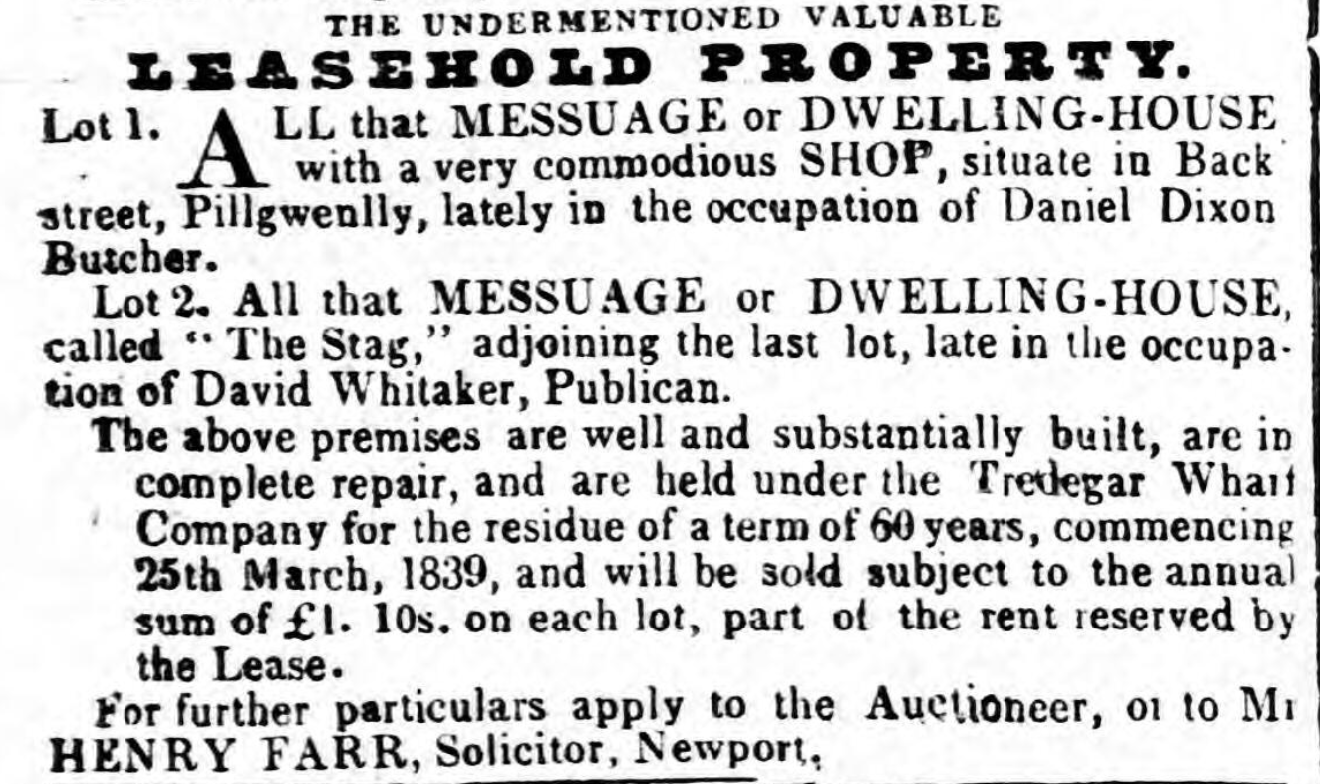

Incendiary Fires At Newport
We stop the Press to announce that a most alarming account has just reached us, of some incendiary fires having taken place near Newport.
A commercial gentleman, who left that town yesterday, informs us, that at three o'clock in the morning he was awakened by an alarm of fire and he says the inhabitants were 'parading the streets during the whole night.
Being of a timid disposition, and unacquainted with the neighbourhood, he got up early and came off for Monmouth, without ascertaining the particulars. He understood that some stacks of corn and part of a farm house had been burnt. He saw the reflection of the fire, which appeared to be in the direction of the road from Newport to Cardiff.
— Monmouthshire Merlin, 5th November, 1831

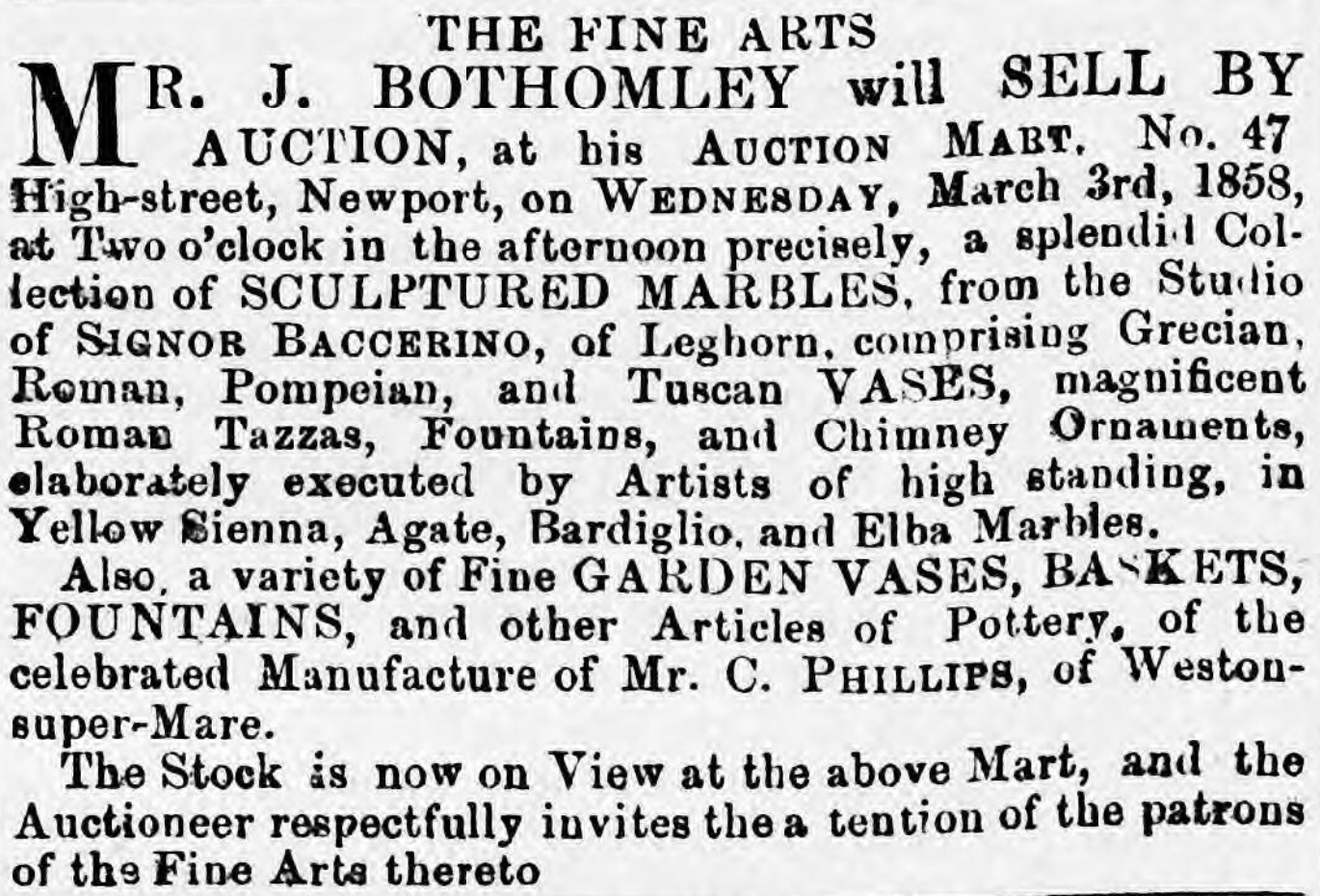

Properties For Let/Sale
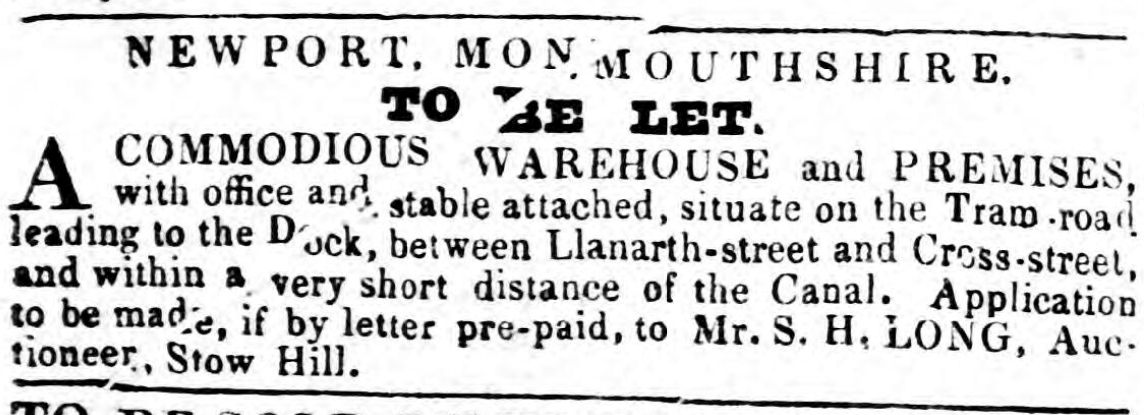
In between Llanarth Street and Cross Street on what then was called Tram Road, but today is called Kingsway was a 'commodious' warehouse. The area is circled in a map from just before the time of the advert.
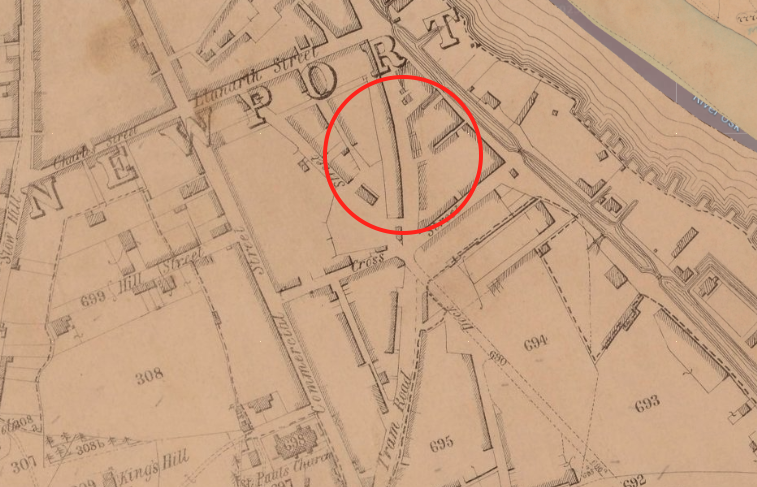
A house belonging to someone who had become bankrupt was for sale at the same time as the warehouse above and was near the drawbridge over the canal at the Moderator Wharf. This was located in front of today's Riverfront Theatre.
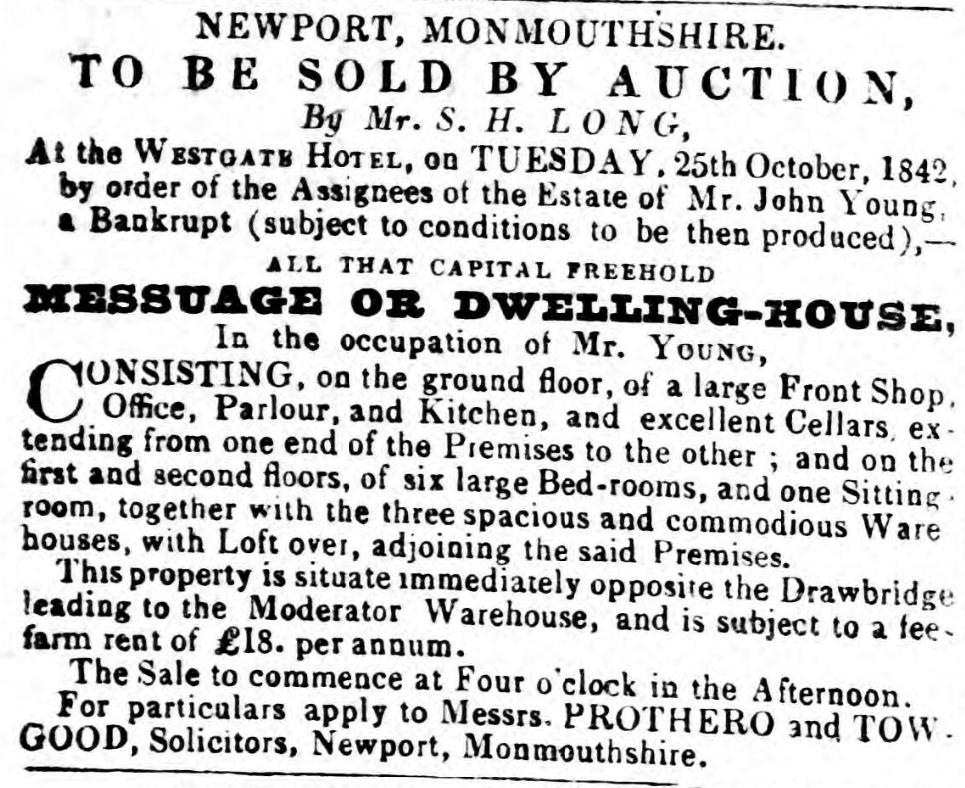
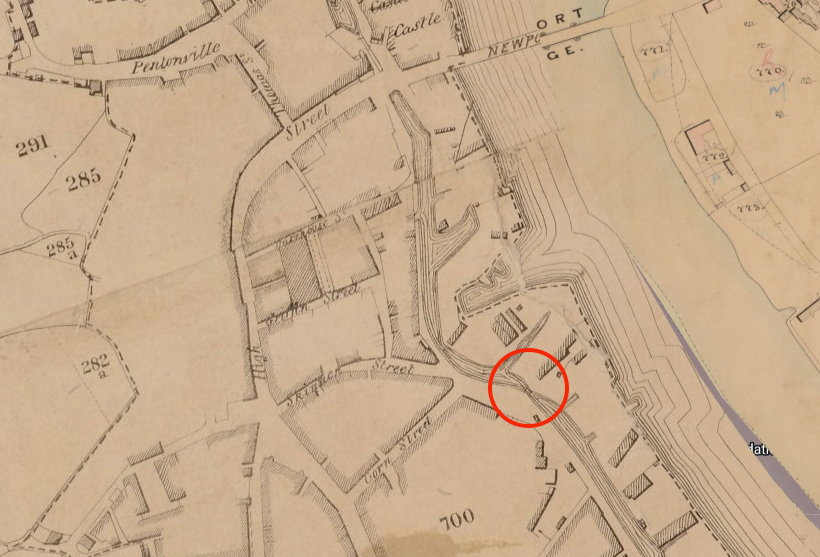


'Leaving a Wagon Unattended at the Handpost Inn'
Thomas Watts was charged with leaving his team and waggon unattended, near the Handpost Inn, St. Woollos, on the 21st December. P.C. Steel proved the case. Defendant admitted the offence, and was fined 5s. and costs.
— Monmouthshire Merlin, 13th January, 1866
'Unlicensed Driver Drives Cab Whilst Master Has Breakfast'
Thomas Craddock was summoned for driving a licensed cab, he not being a licensed driver. Chief Superintendent Huxtable proved the case. Defendant admitted the offence, but stated that he had only driven the cab while his master had his breakfast. Ordered to pay the costs, 5s. 6d.
— Monmouthshire Merlin, 13th January, 1866
Stealing Seven Coats
Margaret McCarthy was charged with stealing seven coats, the property of Messrs. Isaacs and others. Remanded to Friday.
— Monmouthshire Merlin, 13th January, 1866
'12yo Boy Whipped for Stealing Watch'
Thomas Murphy, aged 12 years, was charged with stealing a silver watch, the property of James Leyshon, Stow Hill. He pleaded guilty to the offence. Mr. Huxtable said the boy had no relatives, and was very wicked having in this instance, crept to the bed-head of the prosecutor while he was asleep, and stolen the watch, which he hid in a hole in a field close by.
The boy had been in gaol three months for stealing money, and on his release the Rev. C. Hodgson, of Victoria-place, had kindly assisted him with food, &c., and Mr. Partridge had given him a suit of clothes. He was committed to Usk for three months, to be once whipped.
— Monmouthshire Merlin, 9th June, 1854

Mr Sim Reeves at the Victoria Hall
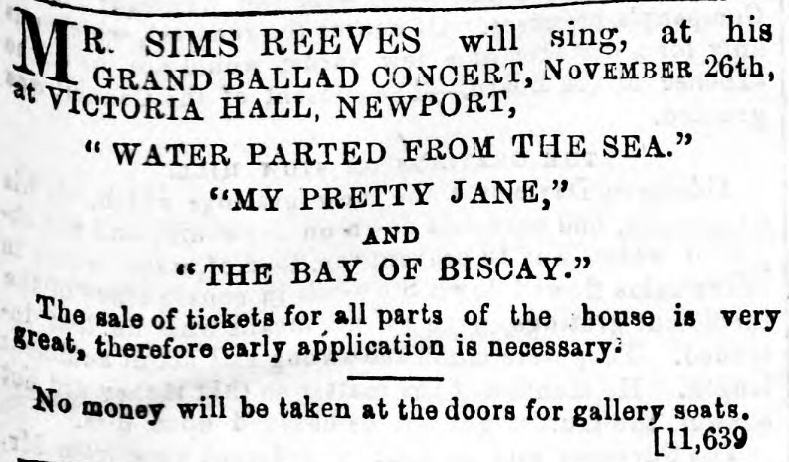
Sims Reeves was the leading tenor of his generation. London-born, and trained in Paris and Milan, he made his London stage debut at Drury Lane in 1847. His performances in oratorio were widely acclaimed, and he sang privately for Queen Victoria and Prince Albert.
He performed his 'grand ballad concert' on 26th November, 1867 at the Victoria Hall, Newport. The photograph below from the National Gallery was taken in Birmingham the same year he performed.
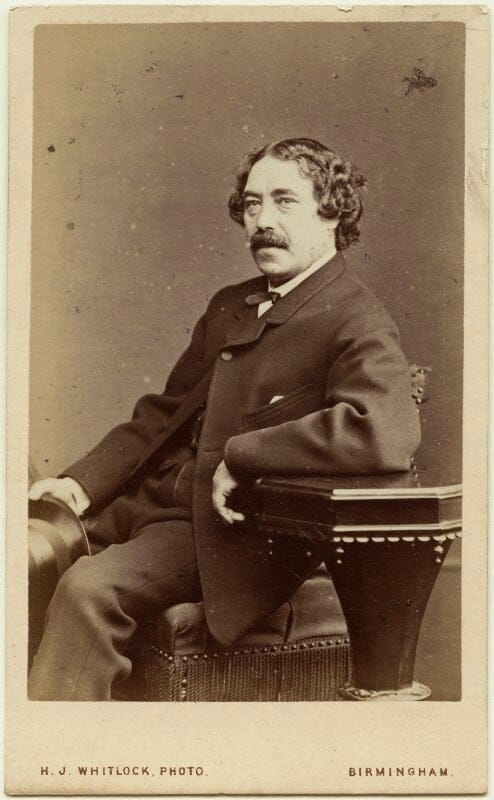

Mrs and Miss C. Monkhouse's Seminary

Victoria Place was relatively new when the advert for a seminary was placed in 1846; the street only being completed in 1844 by Rennie Logan, constructors of Town Dock.

The seminary had also been there in 1845 and 1844.

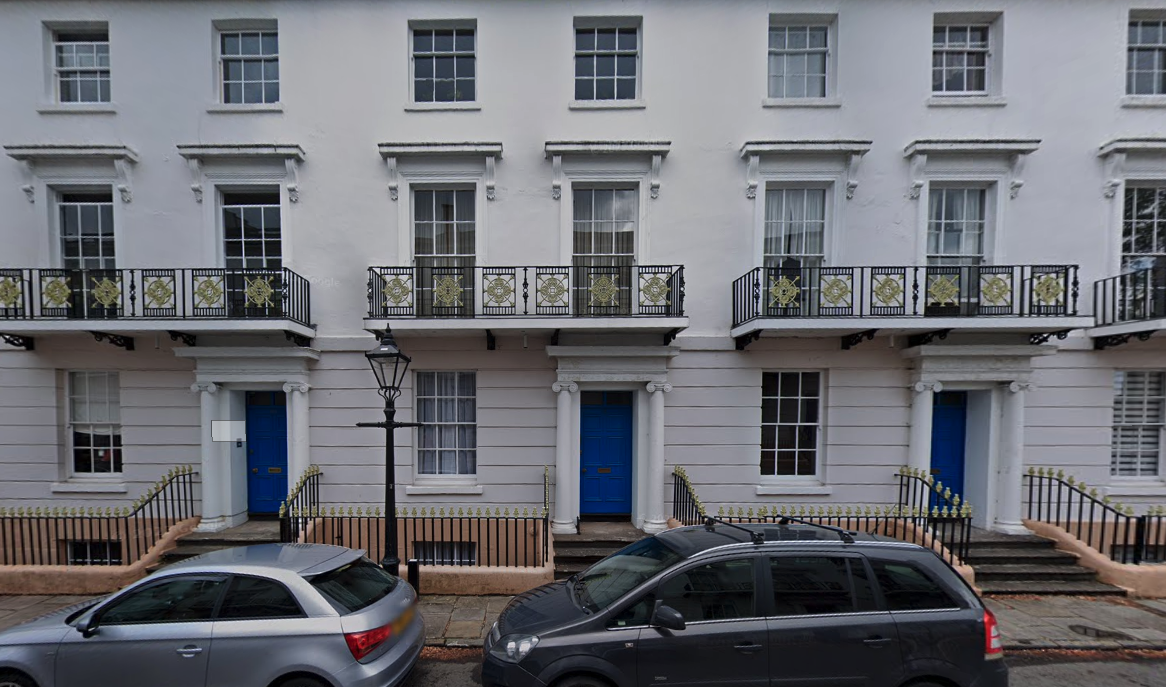

Victoria Place House Prices in 1874
An advert in the Monmouthshire Merlin in April, 1874 lists all of the houses in Victoria Place along with how much they sold at auction. Prices ranged from £530 for No. 9 to £900 for No. 7. According to the Bank of England's inflation calculator, that's the equivalent of £52,000 to £88,000.
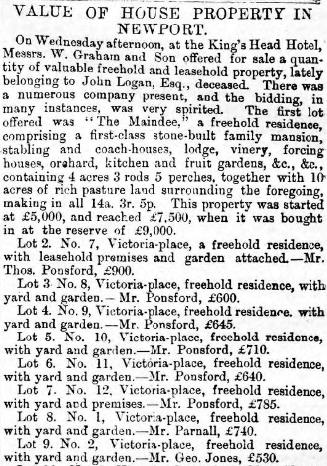
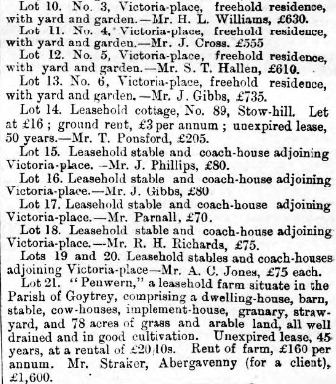
Also sold were two coach houses adjoining Victoria Place which may well have been the two houses located on the corner of Victoria Road and Victoria Place. They pre-date Victoria Place and were present on the tithe map from 1840/41.
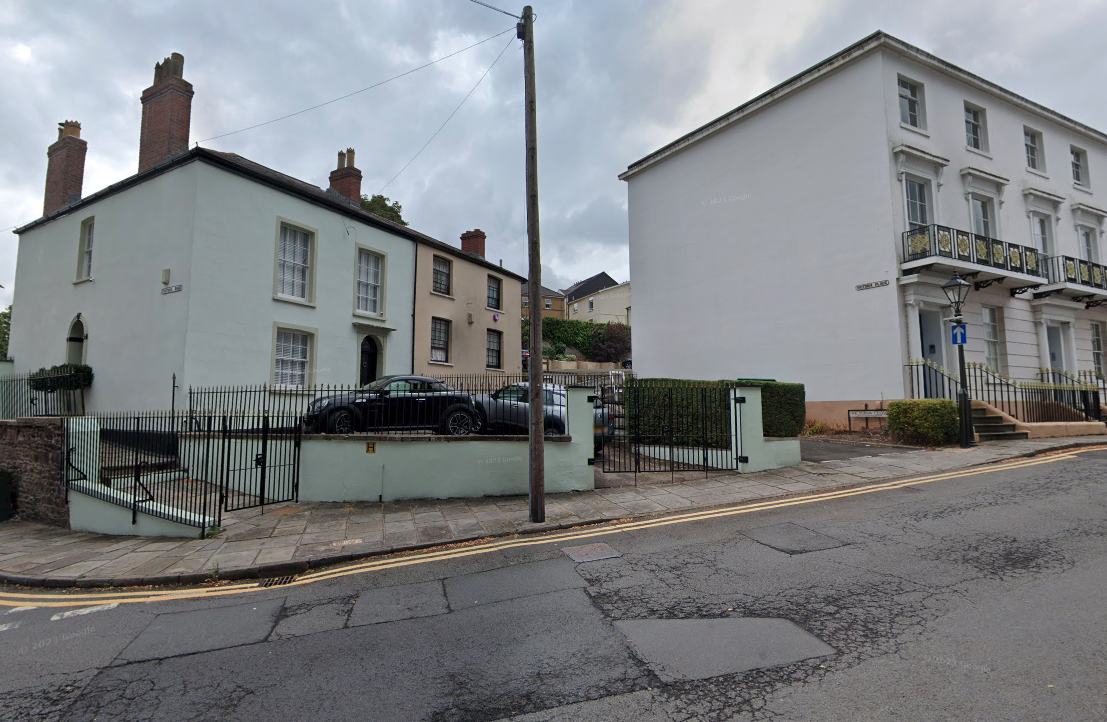
The grand house that is The Maindee was also sold with bidding starting at £5,000 and ultimately going for the reserve price of £9,000 which is the equivalent of almost £882,000 in today's money.
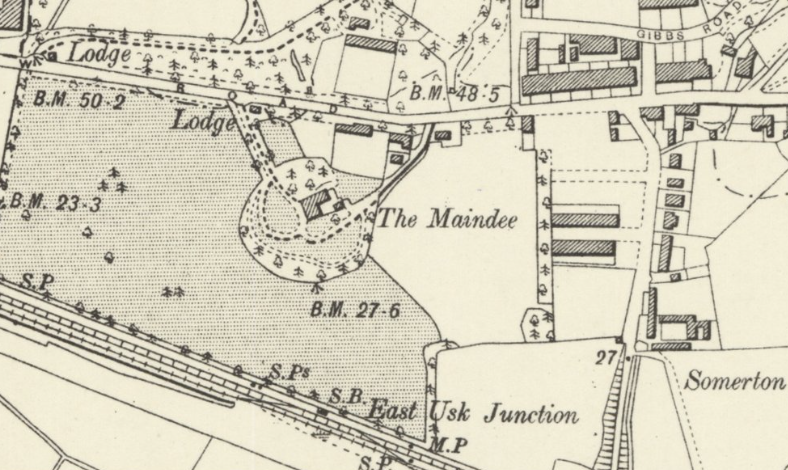

Florodora at the Lyceum
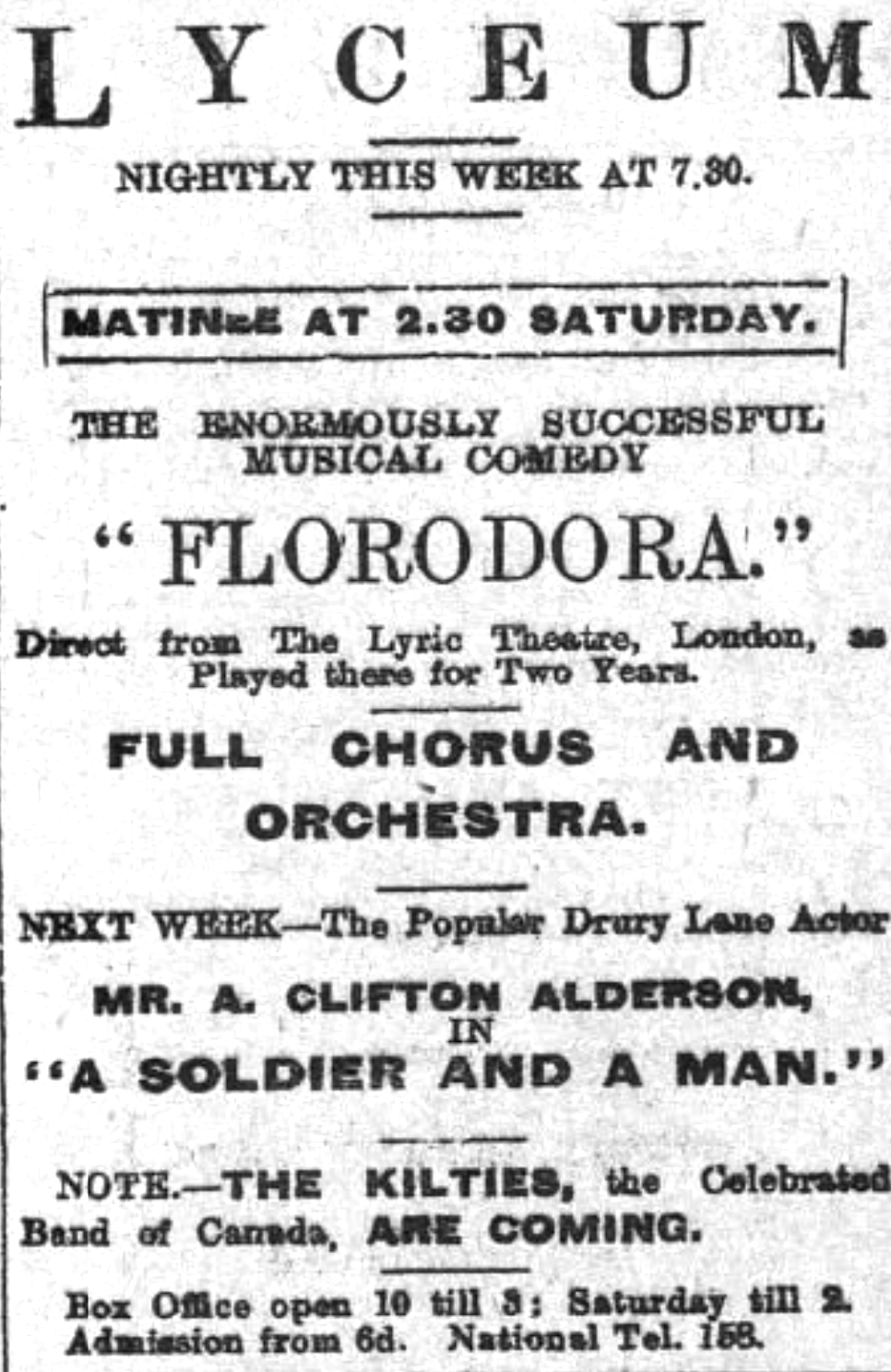
Florodora was a popular Edwardian musical comedy which after its long run in London, became one of the first successful Broadway musicals of the 20th century. It opened in November 1899 and ran for 455 performances closing in March 1901. It had a popular run on Broadway in 1901/02 with 552 performances and eventually ended up in Newport in 1904.
Wikipedia has a synopsis of the play including recordings of songs from 1908, not long after the show in Newport.


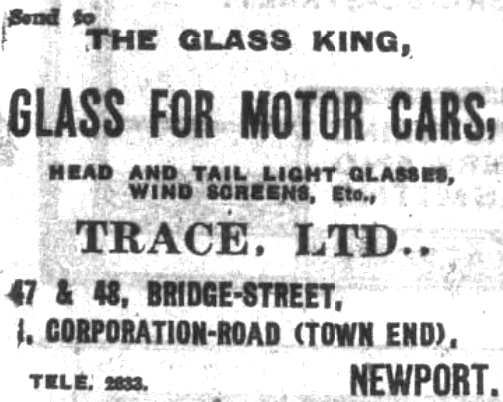

'Bridge at the Dock Street Level Crossing — Half a Job!'
Mr. Batchelor remarked that perhaps the Board were aware that the Monmouthshire Company were about to put up the long-desired bridge at the Dock-street level crossing. At the Public Works Committee, held the previous week, it was suggested that Mr. Kirby, the Surveyor, should request to see the plans of the proposed bridge, that the Board might know what sort of a bridge they were going to have.
The Surveyor said, that by consent of Mr. Sayer he had an informal inspection of the plans of the bridge about to be erected, and he also saw the plans of the bridge proposed to be erected in the first instance, the estimate for which was considered too much for the company to expend.
The contract for the proposed bridge had been given to Mr. Firbank and Mr. Elliott, who were preparing materials for its erection. According to the plans, the foot bridge would not, as at first proposed, be carried over the whole crossing, but only over the two main lines, that was over four lines of rails—two in and two out.
The sidings, which belonged to, and were on the property of the Deck Company, were not to be covered over at all.
Alderman Townsend: There are some traps still to be left.
The Surveyor: It will be only half a job.
Mr. Homfray: I understand the work will be all on their own property.
Mr. Lyne: They could not of course make it upon any other.
Mr. Batchelor inquired of the surveyor if he thought the bridge would be well constructed.
The Surveyor: Mr. Sayer always takes care of that. He thought tbe bridge was as much as they could expect.
Mr. Lyne: Is it an iron bridge?
The Surveyor: No, a wooden bridge.
— Monmouthshire Merlin, 13th January, 1866

'Man Dies During Funeral Procession'
The Borough Coroner (Mr W.I.Moore) held an inquest at the Town Hall on Tuesday afternoon concerning the death of William Williams, aged 51, of 32, Bolt Street, who died suddenly on Sunday afternoon while following a funeral procession up Stow Hill.
Thomas William Rees, of 79, Stow Hill, nephew of deceased, employed at the Dos Works, said he saw his uncle about five minutes before his death. He complained of being fatigued. They were following his (witness's) aunt's funeral. Deceased had often complained of shortness of breath and last January was treated for erysipelas. He was insured.
Thomas Tranter, of 15, Railway Street, said he started to go to the funeral with deceased, but he also suffered shortness of breath, and had to fallout at Victoria Place, where he told Williams, he would overtake him. After he had rested, he followed on and found deceased on the pavement opposite 99, Stow Hill. He appeared to be dead. Witness assisted to take him into the house of Mrs Gabriel, and a doctor was sent for, but on his arrival he pronounced Williams dead.
Mrs Gabriel, of 99, Stow Hill, said she was sitting in the front room on Sunday afternoon and saw a man leave the funeral procession, come across the road, and sit on her window-sill. She took no notice of this, but almost immediately he fell forward on to the pavement. With assistance he was brought into her house, and she ran for Dr Gowring, who came at once. This was about four o'clock on Sunday afternoon.
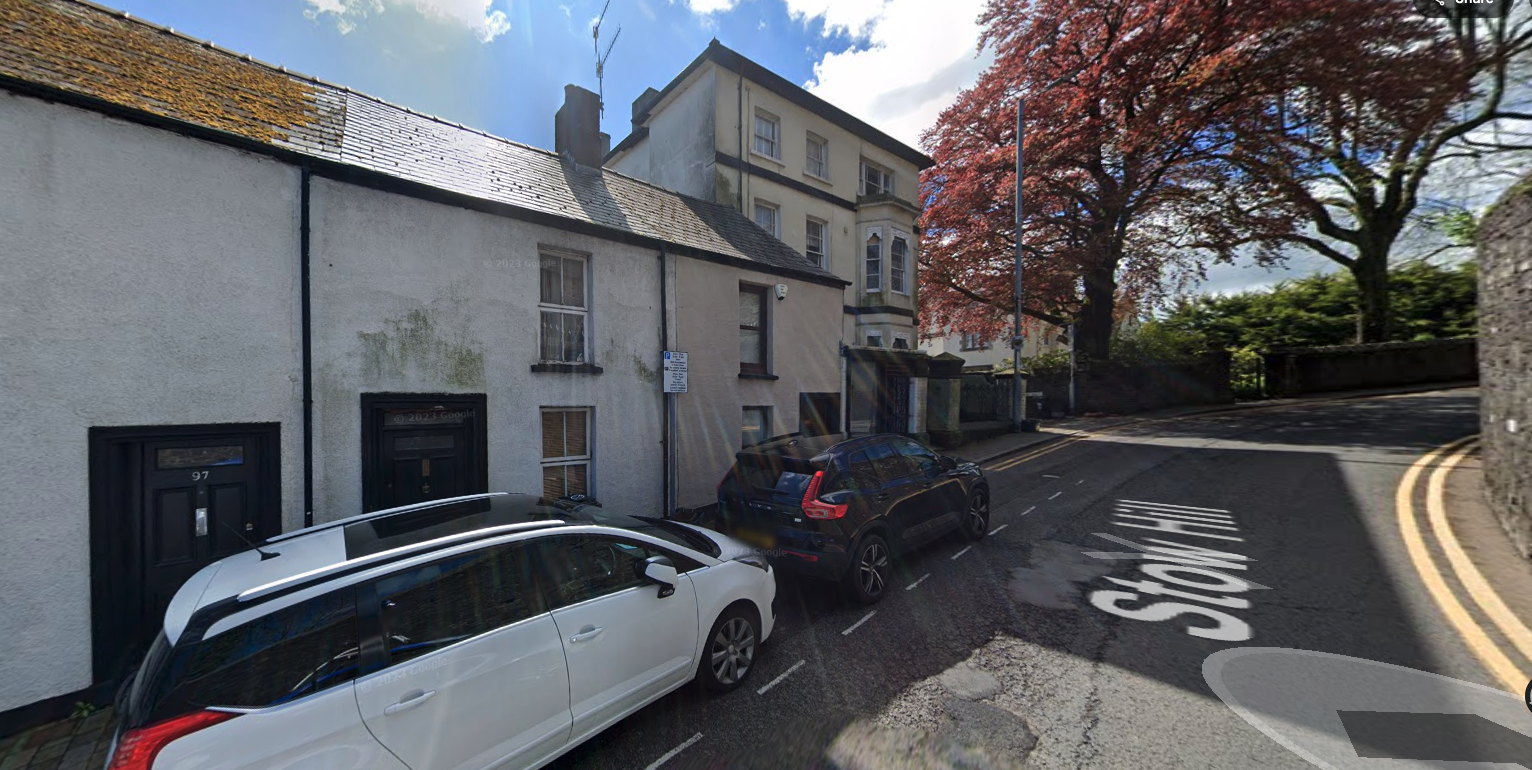
Dr Gowring spoke to being called to see deceased. He was lying on the sofa, quite dead. Death was due to heart disease. The jury returned a verdict in accordance with the doctor's evidence.
— South Wales Argus, 1st December, 1897 (Subscription Required)

'Laying Of Kerbs in Barrack Hill'
Notice the typo in the date at the end of the advert — should be 1897 not 1697.
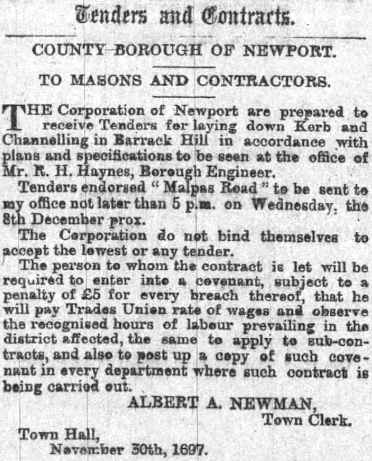

'Book-Making in the Streets is Illegal'
Book-making in the streets is illegal. The Corporation of Newport are invested with powers for the suppression of what is nothing short of a public scandal, and we hope they will rigidly enforce the bye-law relating to street betting, which as in some instances been carried on in a barefaced way.
The insatiable desire to gain by more chance money which should only be the reward of honest effort is, we fear, increasing, and the evil is reaching women.
The maximum penalties inflicted by the borough magistrates should be a salutory lesson.
— South Wales Argus, 1st December, 1897 (Subscription Required)



Ticket Porters
To the Editor of the Monmouthshire Merlin.
Sir, Permit me, through the medium of your journal, to call the attention of the police to the extensive system of plunder carried on along the wharfs, and adjoining thoroughfares in this town.
The labourers, or hobblers, as they are usually termed, employed in discharging vessels, are, with few exceptions, the worst of characters, linked with the inhabitants of Friars' Fields, which, from its contiguity to the shipping, offers a fine receptacle for stolen goods. It is a daily occurrence to see a number of these men loitering about the streets leading to the quay, and it is, I believe, the opinion of all parties in the neighbourhood, that they procure as much by plunder, as they do by labour.
Were the police to visit these places a little oftener, the nuisance would, no doubt, be lessened. And in order to release the consignees of cargoes in this port, from the present wretched system of discharging vessels, I would suggest the propriety of a sufficient number of sober, honest men being elected and licensed as ticket porters, by the corporation, on the principle that is adopted in London, Liverpool, &c.
I am, sir, your obedient servant,
A CONSIGNEE.
Newport, 28th September, 1842.
— Monmouthshire Merlin, 1st October, 1842

'5 Good Reasons to Shop At Watkins' Stores'
One of which is because they're better than the 'Swagger Shops'.
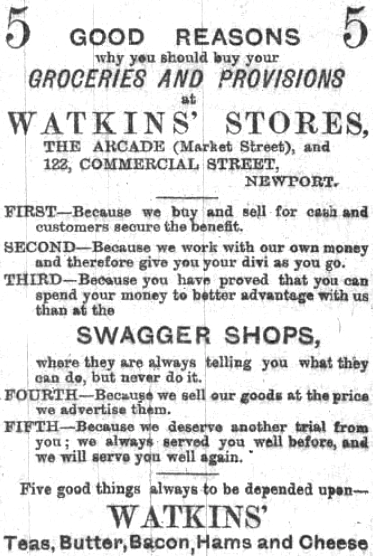

Newport Fire Engine
The dreadful fire at Liverpool, which has been so destructive to life and property (a full account of which appear in our columns this day), suggests to us the necessity of calling public attention to the condition of our fire-engine, which, we are informed, is in a most inefficient and useless state.
We have before alluded to this subject, end we hope now that some steps will be taken to put the engine in a proper state of repair. We hope the authorities are not waiting to prove, at heavy loss of property, and perhaps of life, it's utter worthlessness for the purpose for which it was intended.
— Monmouthshire Merlin, 1st October, 1842
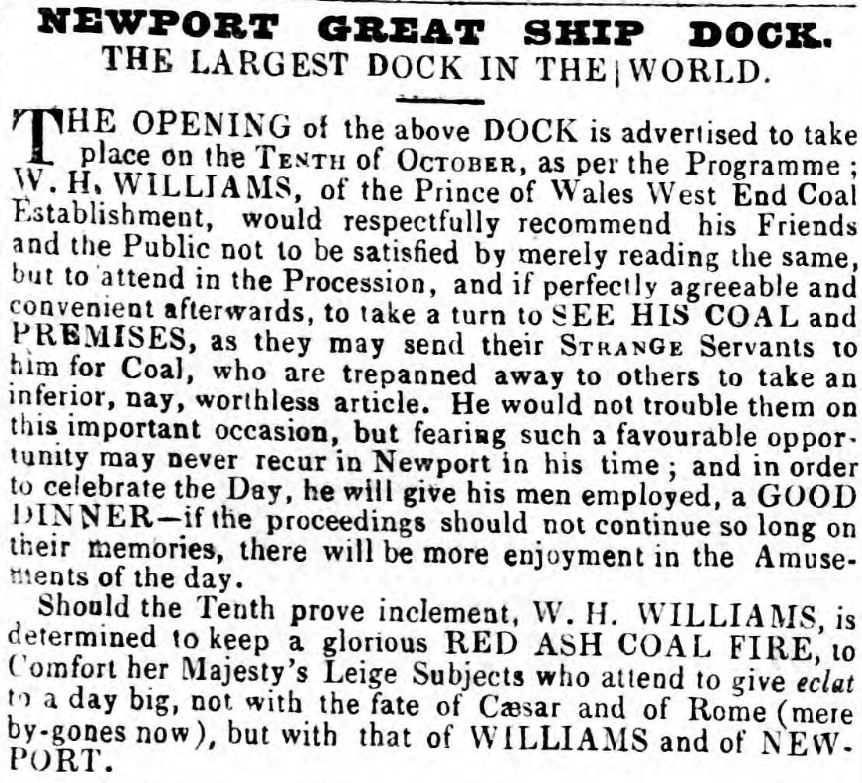

'Testing out Stones for Commercial'
T'he Surveyor said that some time since he had been directed to try two or three different descriptions of stone in Commercial-street, to ascertain which was the best suited for the streets, but that had not yet been done, as no new coating had been required.
A conversation ensued as to the comparative merits of the Black Rock and Risca stones, Alderman Davis stating that some Risca stone was laid on Newport bridge at the same time that Black Rock stone was laid in High-street opposite his office and while the latter had recoated, the former was as good as ever, and would not want a new coat this winter. The cost of Black Rock stone, including hauling, breaking, &c., was 6s 8d; the cost of the Risca stone would be 4s. 2d, and it would be much more durable.
The Surveyor took exception to some of Alderman Davis's conclusions, but he said be would try various kinds of stone when opportunity offered, and report result.
— Monmouthshire Merlin, 16th November, 1867

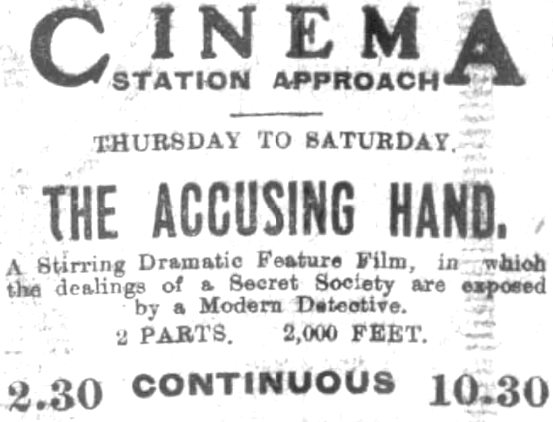
At the cinema near to Newport Station, a 'stirring dramatic feature film' was being shown. The Accusing Hand was 22 minute short silent Western film directed by, and starring, Romaine Fielding.
Interestingly, the advert shows the length of the film in feet with 2,000ft equating to 22 minutes (each 1,000ft being 11 minutes long).


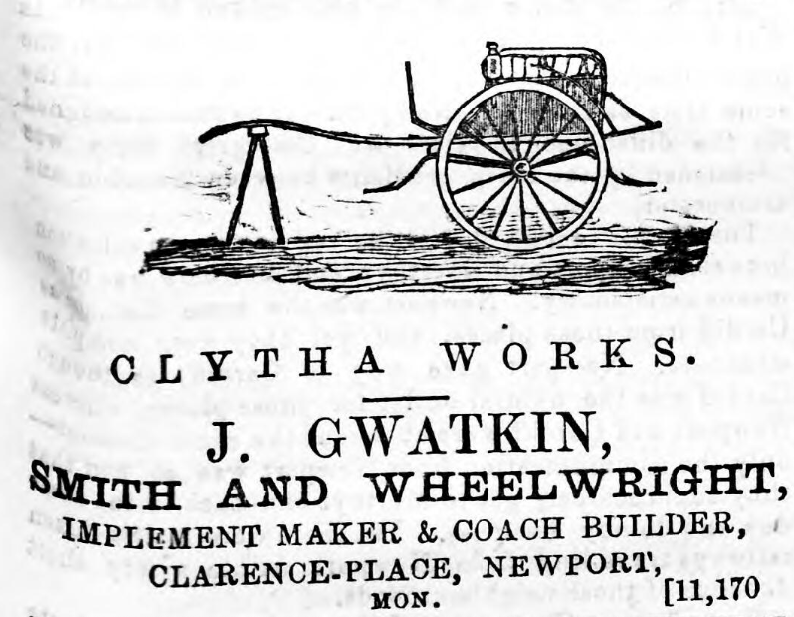


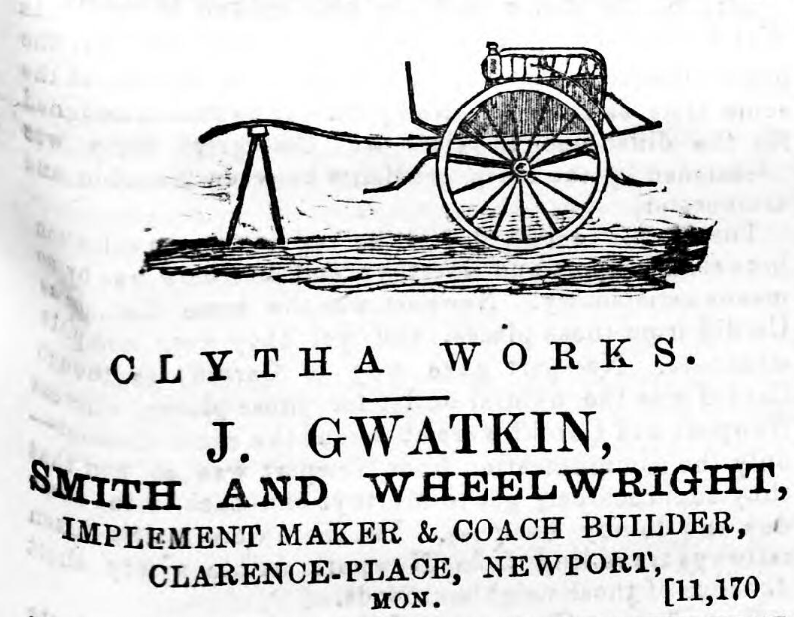
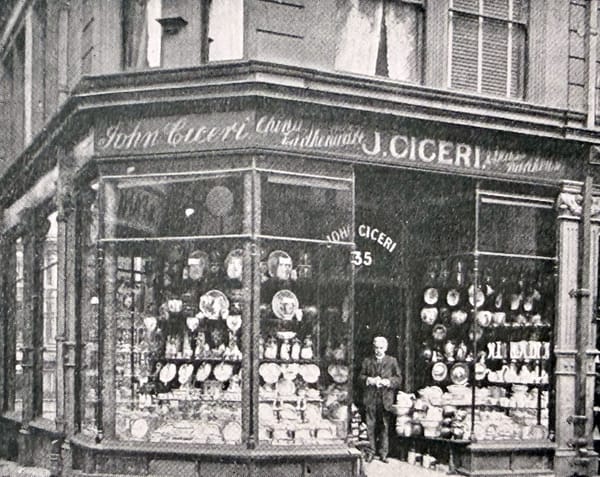
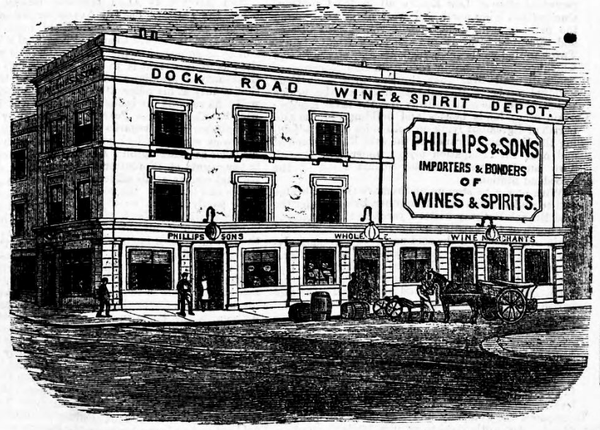
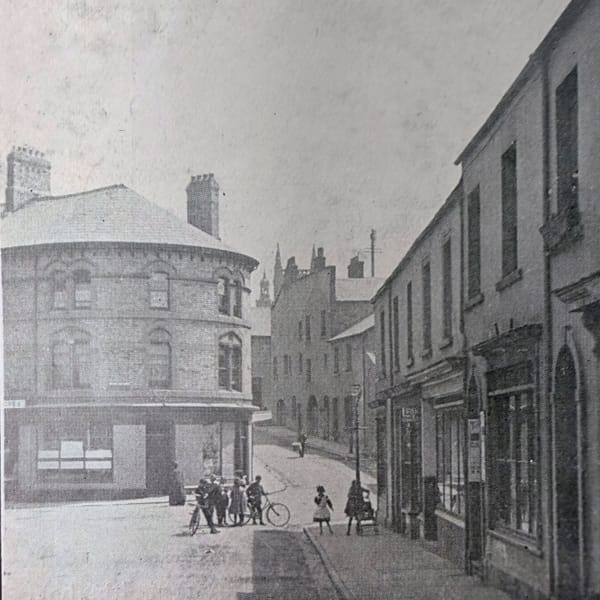
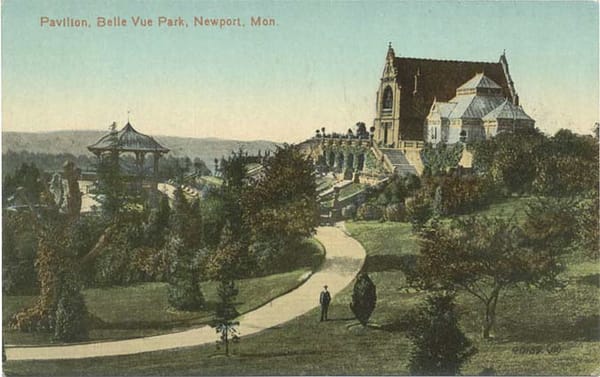
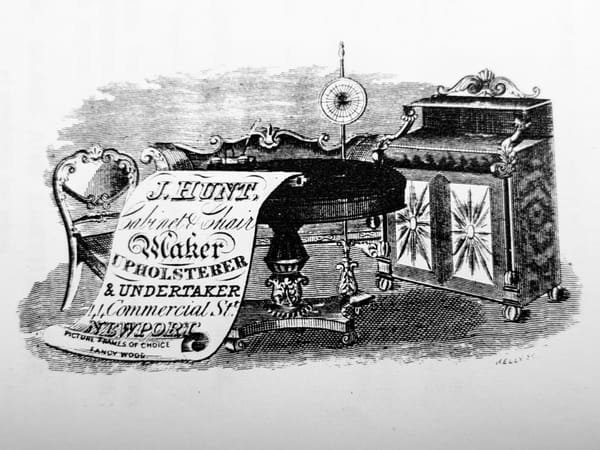
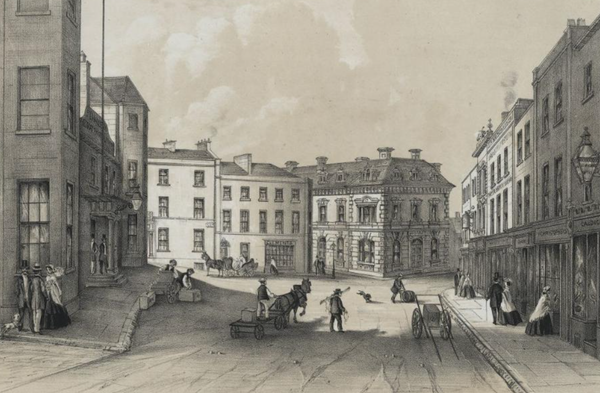
Member discussion